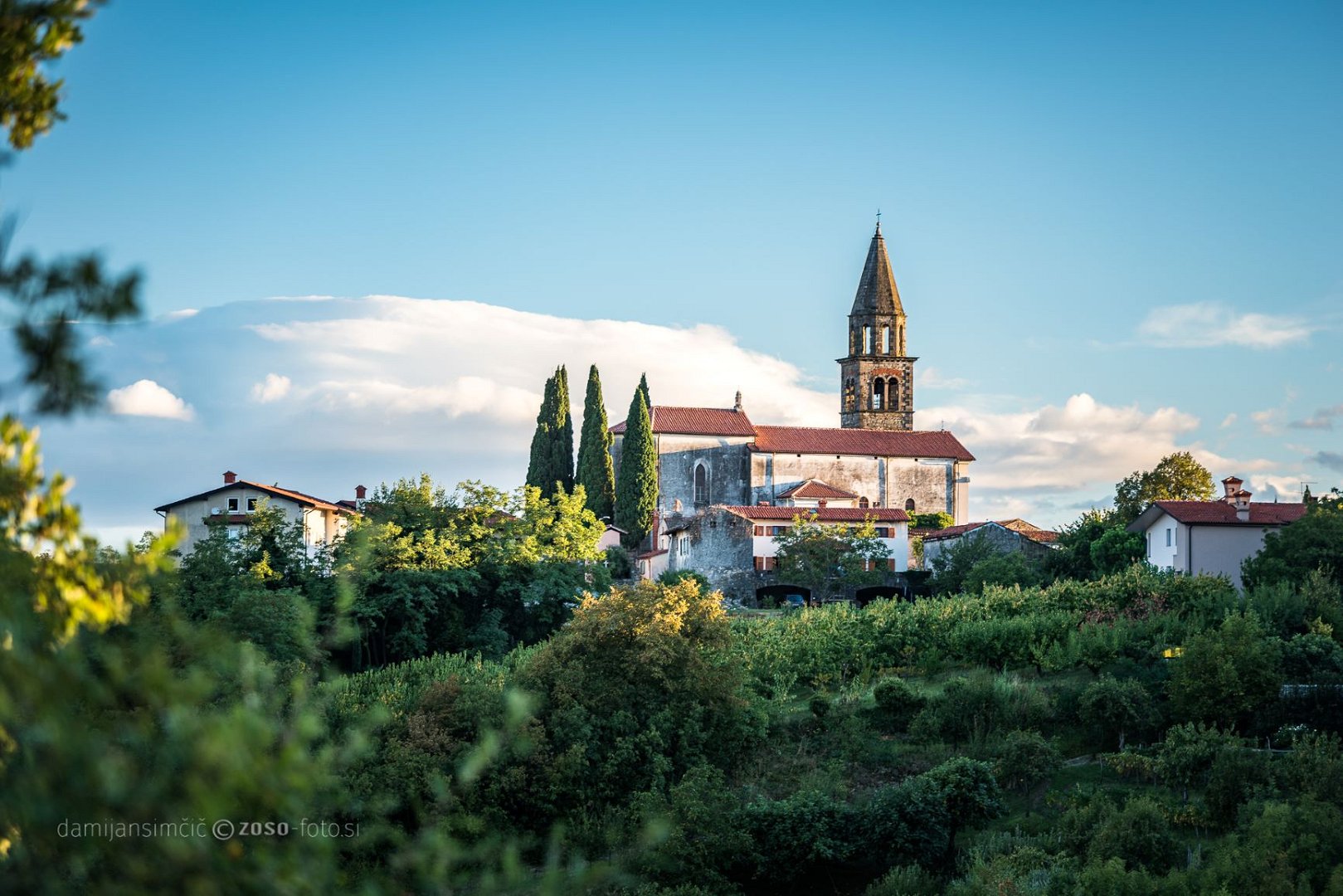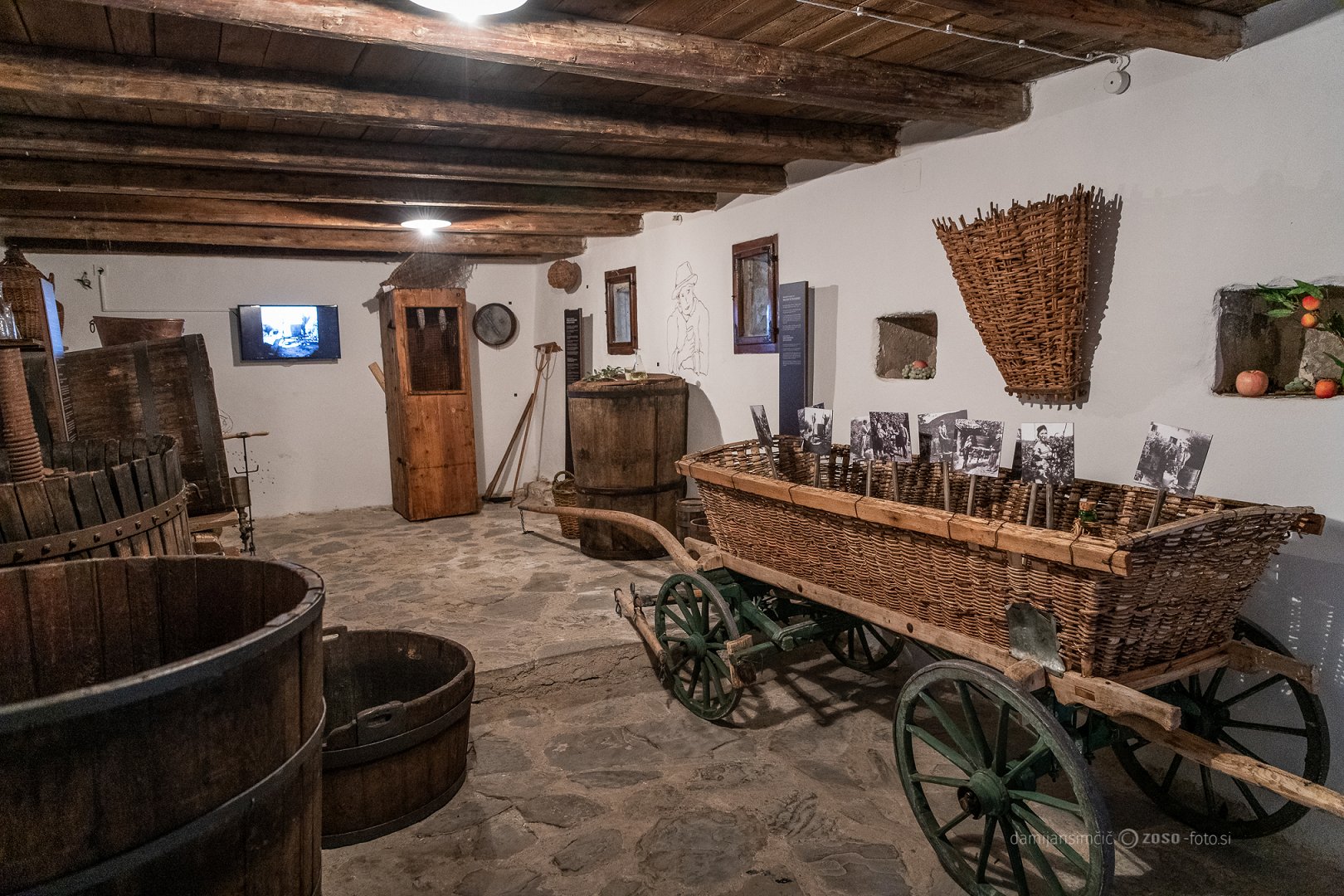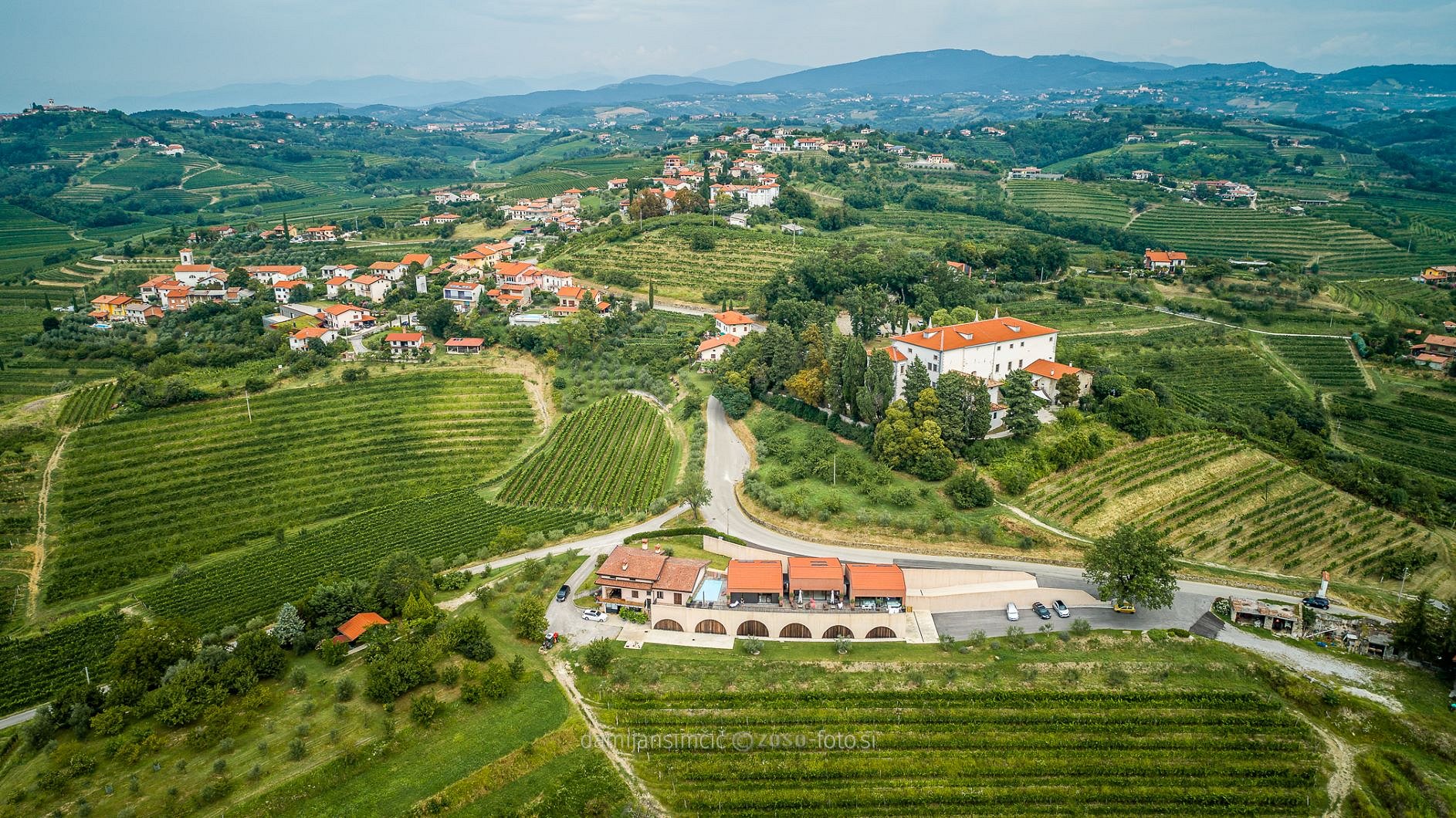Parish Church of St. Michael, Biljana
Biljana is an old medieval parish and the oldest parish in Brda. The church in Biljana is first mentioned in written sources in 1233, and as the Church of St. Michael, it was first mentioned in 1405.
Parish Church of St. Michael is basically Gothic, and is located in the centre of the village, on a slightly elevated area. Its façade, approached by a high staircase, is obscured on one side by the village houses, while a wreath of dark, columnar cypresses surrounds it from the walled eastern side.
From east to west, the long and high three-sided presbytery, with a small stone belfry with a single bell on the west aisle, and the slightly lower and wider rectangular nave with side chapels follow each other. The bell tower is attached to the south side of the nave and the sacristy is attached to the same side of the presbytery.
The view of the walls, painted by Clemente Del Neri around 1900, is somewhat hidden by the Gothic ribbed vault of the presbytery, which bears the date 1534. The church decorated with sculptures, the most important of which is the Resurrection of Christ from the first half of the 16th century, the work of a South Tyrolean workshop. During the restoration of the frescoes in 1999, frescoes were discovered under the plaster which stylistically refer to the time of the Resurrection of Christ sculpture. The frescoes behind the side altar prove that the original church was of the same size and several times larger than other churches in the area during the Gothic period. The size probably reflects the special position enjoyed by the Biljana church as a ancient parish for the greater part of Brda. The now mostly abandoned houses around it are probably the dwellings of the chaplains who lived and served Brda. The bell tower of the Aquileian type was rebuilt at the end of the 19th century by the Kozana mason Valentin Vuga.


